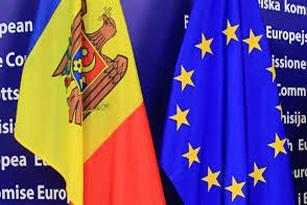
Today, Christian Danielsson, European Commission Director General for European Neighbourhood Policy and Thomas Mayr Harting, Managing Director at the European External Action Service for Europe and Central Asia, are in Chisinau to reaffirm the EU's commitment to deliver tangible benefits to the Moldovan citizens.
They will meet with President Dodon, Prime Minister Pavel Filip, representatives from the opposition parties and from civil society. Christian Danielsson will also give a speech at the Academy of Economic Studies of Moldova to young people to recall the EU's commitment to invest in young people’s skills.
This visit comes amid the ongoing deterioration of the rule of law and democracy in the country. The European Union expects the Moldovan authorities to take urgent and immediate action to rectify the situation, and in particular to:
- Ensure the upcoming parliamentary elections are conducted in a credible, inclusive and transparent manner. This includes ensuring appropriate international monitoring and ensuring a level playing field for the opposition, including in terms of registration and in the media;
- Expedite a thorough, impartial and comprehensive prosecution of the banking fraud, exposed in 2014; recover the misappropriated funds and bring all those responsible to justice, irrespective of any political affiliations and without further delay;
- Engage on substantive judicial reform, with a view to guaranteeing quality, transparency, impartiality and independence of the judiciary.
- Fight against high-level corruption including by ensuring the effective implementation of the asset declaration system with regard to all high-level actors.
In light of this deterioration, and in line with the principle of strict conditionality, the European Commission has taken the decision to substantially recalibrate its financial assistance and redirect support to projects that have a direct, positive impact on Moldovan citizens (see background information). Payments under the Macro-Financial Assistance and EU budget support programmes have also been put on hold, pending tangible progress in the aforementioned areas.
The EU will continue to follow with the closest attention all aspects relevant to the preparation and conduct of the parliamentary elections in the Republic of Moldova.
Background:
Impact of EU support to Moldovan citizens:
In the past years, the EU has been supporting many reforms at national level and provided substantial amounts of financial assistance to Moldova, which has brought the following results to Moldovan people:
- Financial support for 5,000 enterprises, supported 56,000 jobs in SMEs, and created 1,735 new jobs.
- Nearly 150 nurseries, schools and community centres around the country have benefited from an EU programme providing them with efficient energy supply.
- New drinking water supply infrastructure has been built with EU support all over the country. Now, more than 15,000 people are provided with safe and sufficient drinking water.
- The EU is also contributing to building roads all around the country, including the EU-funded Ungheni bypass.
- In the years 2015-2017, more than 900 Moldovan students and academic staff have been able to study and teach in the EU thanks to the EU's Erasmus+ programme.
Future EU programmes directly benefitting Moldovan citizens:
EU assistance will focus only on actions that bring direct benefits to citizens and support agents of change including civil society, independent media, reform-minded local authorities and SMEs. Under the 2017 and 2018 budgets, the EU has recalibrated its financial support, now worth over €106 million, with the following programmes to be implemented within the coming years:
- Socio-economic development of the focal regions – Ungheni and Cahul. The support programme, worth €23 million, will contribute to the creation of jobs and value chains, provide support to local SMEs, local actors and civil society and fund the development of small-scale infrastructures. This will help boost local social-economic development and reduce the gap between Chisinau and the regions of the Republic of Moldova.
- The EU will also continue supporting the peaceful settlement of the Transnistrian conflict. Over €10 million of EU funds will help to increase confidence between Chisinau and Tiraspol through joint initiatives involving local authorities, civil society organisations and other stakeholder from both sides of the river.
- The EU will also invest €40 million in infrastructure, with the electricity interconnector between Romania and Moldova, connecting further EU and Moldova and leading to more stable and cheaper electricity for citizens.
- The EU will also further promote the international exchange of students through the Erasmus+ programme and fund more mobility opportunities for Moldovan researchers, with the aim to further scientific excellence in Moldova and increase their competitiveness in EU programmes such as Horizon 2020.
For more information on the impact of EU-funded projects in Moldova, visit:
https://ec.europa.eu/neighbourhood-enlargement/neighbourhood/countries/moldova_en
Details
- Publication date
- 27 November 2018
- Author
- Directorate-General for Neighbourhood and Enlargement Negotiations
